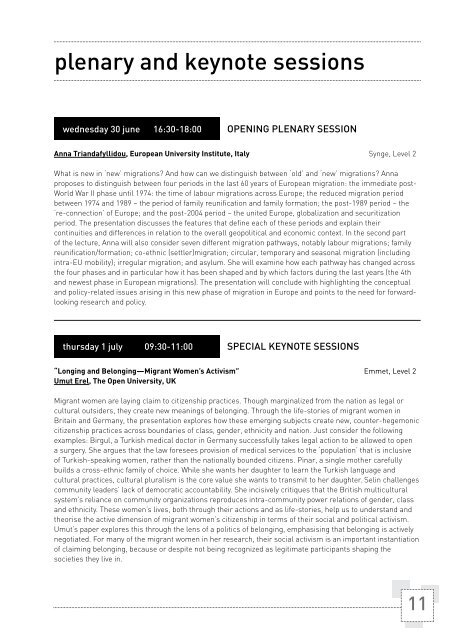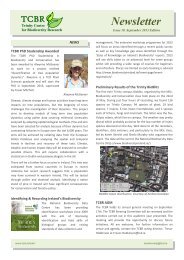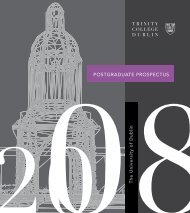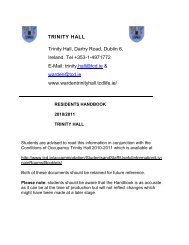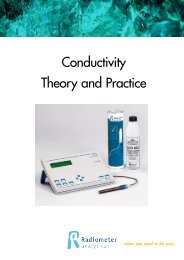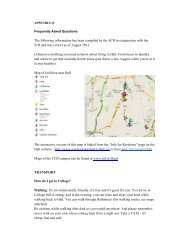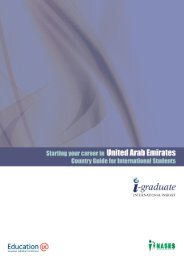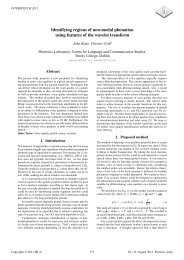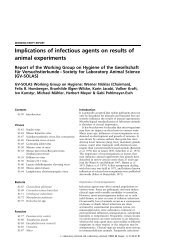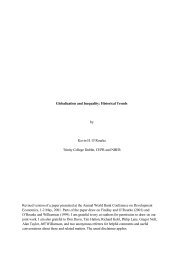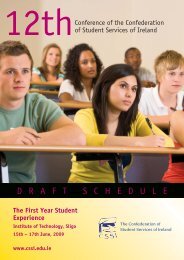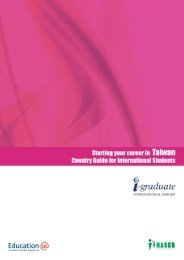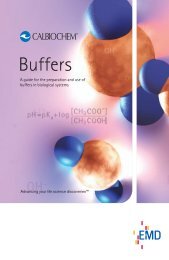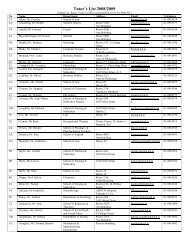Conference Programme (PDF, 1019KB) - Trinity College Dublin
Conference Programme (PDF, 1019KB) - Trinity College Dublin
Conference Programme (PDF, 1019KB) - Trinity College Dublin
Create successful ePaper yourself
Turn your PDF publications into a flip-book with our unique Google optimized e-Paper software.
plenary and keynote sessions<br />
wednesday 30 june 16:30-18:00 OPENING PLENARY SESSION<br />
Anna Triandafyllidou, European University Institute, Italy Synge, Level 2<br />
What is new in ‘new’ migrations? And how can we distinguish between ‘old’ and ‘new’ migrations? Anna<br />
proposes to distinguish between four periods in the last 60 years of European migration: the immediate post-<br />
World War II phase until 1974: the time of labour migrations across Europe; the reduced migration period<br />
between 1974 and 1989 – the period of family reunification and family formation; the post-1989 period – the<br />
‘re-connection’ of Europe; and the post-2004 period – the united Europe, globalization and securitization<br />
period. The presentation discusses the features that define each of these periods and explain their<br />
continuities and differences in relation to the overall geopolitical and economic context. In the second part<br />
of the lecture, Anna will also consider seven different migration pathways, notably labour migrations; family<br />
reunification/formation; co-ethnic (settler)migration; circular, temporary and seasonal migration (including<br />
intra-EU mobility); irregular migration; and asylum. She will examine how each pathway has changed across<br />
the four phases and in particular how it has been shaped and by which factors during the last years (the 4th<br />
and newest phase in European migrations). The presentation will conclude with highlighting the conceptual<br />
and policy-related issues arising in this new phase of migration in Europe and points to the need for forwardlooking<br />
research and policy.<br />
thursday 1 july 09:30-11:00 SPECIAL KEYNOTE SESSIONS<br />
“Longing and Belonging—Migrant Women’s Activism” Emmet, Level 2<br />
Umut Erel, The Open University, UK<br />
Migrant women are laying claim to citizenship practices. Though marginalized from the nation as legal or<br />
cultural outsiders, they create new meanings of belonging. Through the life-stories of migrant women in<br />
Britain and Germany, the presentation explores how these emerging subjects create new, counter-hegemonic<br />
citizenship practices across boundaries of class, gender, ethnicity and nation. Just consider the following<br />
examples: Birgul, a Turkish medical doctor in Germany successfully takes legal action to be allowed to open<br />
a surgery. She argues that the law foresees provision of medical services to the ‘population’ that is inclusive<br />
of Turkish-speaking women, rather than the nationally bounded citizens. Pinar, a single mother carefully<br />
builds a cross-ethnic family of choice. While she wants her daughter to learn the Turkish language and<br />
cultural practices, cultural pluralism is the core value she wants to transmit to her daughter. Selin challenges<br />
community leaders’ lack of democratic accountability. She incisively critiques that the British multicultural<br />
system’s reliance on community organizations reproduces intra-community power relations of gender, class<br />
and ethnicity. These women’s lives, both through their actions and as life-stories, help us to understand and<br />
theorise the active dimension of migrant women’s citizenship in terms of their social and political activism.<br />
Umut’s paper explores this through the lens of a politics of belonging, emphasising that belonging is actively<br />
negotiated. For many of the migrant women in her research, their social activism is an important instantiation<br />
of claiming belonging, because or despite not being recognized as legitimate participants shaping the<br />
societies they live in.<br />
11


